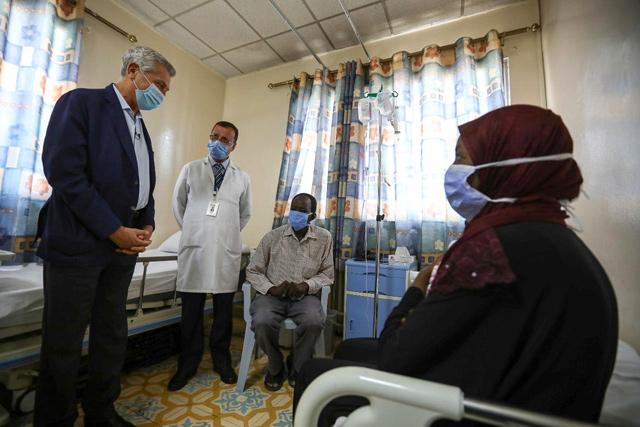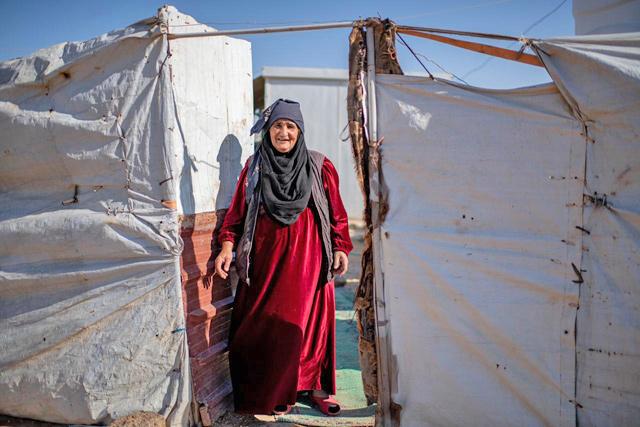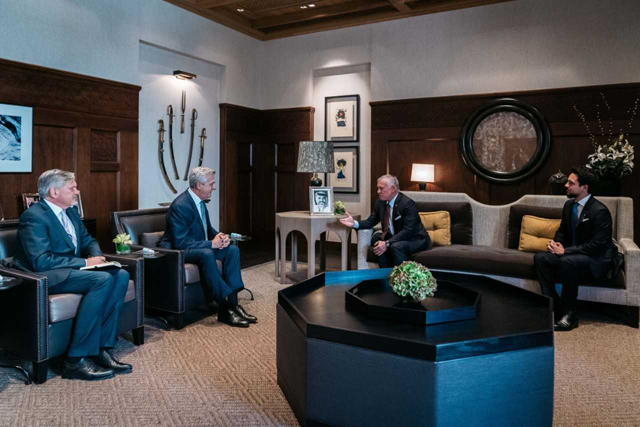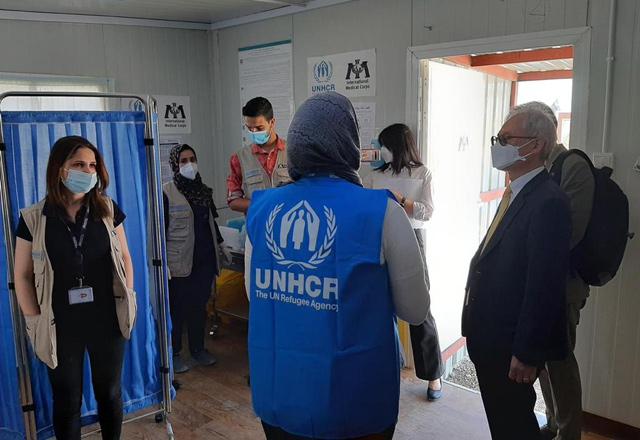You are here
UN refugee chief concludes Jordan visit with call for solidarity amid COVID crisis
By JT - Sep 15,2020 - Last updated at Sep 15,2020

UN High Commissioner for Refugees Filippo Grandi meets refugees receiving treatment in Amman (Photo courtesy of UNHCR)
AMMAN — UNHCR, the UN Refugee Agency, continues to ramp up measures to prevent the spread of COVID-19 among Jordan’s refugee population and is seeking to mobilise additional resources for the country’s overall pandemic response, UN High Commissioner for Refugees Filippo Grandi said at the conclusion of a two-day visit to the Kingdom on September 14-15.
The high commissioner’s visit included meetings with senior government officials, refugees and local Jordanians, the UNHCR said in a statement.
His visit came after a recent spike in COVID-19 infections in the country including the first six confirmed cases among Syrians living in the two main refugee camps, Zaatari and Azraq, the statement said.
“I am grateful to Jordan as a major refugee host country for its continued hospitality and efforts to include refugees in the national health system and coronavirus response plan,” the statement quoted Grandi as saying.
“I urge donors to maintain solidarity with Jordan as it deals with the twin threats to health and livelihoods faced by refugees and vulnerable Jordanians alike,” he added
Jordan currently hosts around 750,000 registered refugees, including more than 658,000 from the conflict in neighbouring Syria, according to the UN agency.
UNHCR is working closely with the government of Jordan to support the humanitarian response to the pandemic and its longer-term economic impact.
It has provided protective equipment to hospitals and health clinics, distributed medication to refugees and built quarantine areas in Zaatari and Azraq.
“In addition, we are making sure that whatever resources we mobilise for healthcare related to the pandemic can be used by everybody — by the refugees and by Jordanians. The virus does not make any distinction and nor should we,” Grandi said.
The affordability of healthcare remains a challenge for many refugees, who often rely on UNHCR to get the treatment they need.
In 2020, over $1 million will be distributed to refugees as part of UNHCR’s cash for health programme and 36,000 refugees referred to hospitals for secondary and tertiary healthcare at a cost of $5.2 million, the statement said.
Despite this, over 2,000 refugees are currently on UNHCR’s waiting list for medical treatment due to a lack of funds.
The high commissioner met refugees from Syria and Sudan who were receiving treatment free-of-cost at Luzmila Hospital in Amman, thanks to cooperation between UNHCR and its healthcare partners.
During his visit, Grandi also met refugee and local Jordanian students benefitting from UNHCR scholarships at Luminus Technical University College in Amman.
With only 3 per cent of refugees globally able to access higher education, Luminus provides vocational training and diplomas for refugee youth alongside their Jordanian counterparts, then actively matches their skills to employment opportunities upon graduation.
Almost 10 years into the Syria conflict, 79 per cent of refugees in Jordan live under the poverty line and the coronavirus crisis has only exacerbated this situation, the statement said.
It is estimated that approximately 17 per cent of Jordanians and a third of refugees have lost their jobs during the pandemic. As a result, UNHCR is investing in livelihoods programmes to encourage refugees to become self-sufficient and thus contribute to improve the overall economic situation in the Kingdom, concluded the statement.
Related Articles
AMMAN — As 2019 comes to a close, the number of refugees registered in Jordan currently stands at 744,795, according to a recent statem
AMMAN — His Majesty King Abdullah on Sunday received UN High Commissioner for Refugees Filippo Grandi at Al Husseiniya Palace, according to
AMMAN — In support of the continuing measures to prevent the spread of the pandemic in Jordan’s refugee camps, the Republic of Korea has don



















